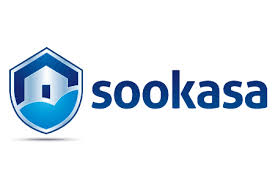Good Monday morning, everyone! Hope you had a stellar weekend.
—–
Top News in the A.M.
The six juiciest documents from the Apple-Samsung trial that kicked off last week.
—–
Know Your Hardware Incubator: Highway1
Creating a hardware device is hard; making it in large quantities is exponentially harder. A reminder of this hard truth appeared on Friday on the Indiegogo page of Scanadu, a medical device startup that began shipping its long-awaited Scout product to its backers last week, then stopped, saying the device isn’t working as expected.
It’s exactly the problem that Highway1, a nearly year-old incubator program in San Francisco, promises to solve. Here’s how it works: Twice a year, Highway1 invites 10 or so teams to work at its offices for four months. In exchange for 3 to 6 percent of their companies, it provides them with $20,000, access to $3 million in prototyping tools, and an education – including in Shenzhen, China — about how consumer electronics are made. Highway1 should know; it’s backed by PCH International, a 5,000-person, China-based company that handles manufacturing contracts, packaging, and shipping for major electronic brands, and which has strong relationships with Asian manufacturers as a result.
Highway1’s program isn’t for everyone. To gain entry, a team has to have at least one working prototype (however crude), and it has to have enough financial muscle to pay for its production run. (The $20,000 it receives from Highway1 won’t cut it.) Late last week, I talked with the head of the program, Brady Forrest — who is an engineer, operator, and former VC — to learn more about his requirements, and when Highway1 is accepting its next batch of companies. Our chat has been edited for length.
You liken Highway1 to Amazon Web Services, which helps software companies scale.
There’s a concept called the Smiling Curve [whose points are marked by “create,” then “make,” then “sell”]. And VCs don’t want to invest in the “make” part. They don’t want to spend a lot of money on you building out a line. So our thesis is: let PCH be that AWS with hardware. We’re a supply chain company; we have 500 engineers in Shenzhen who manage factories for companies of all size. We [can] design the line and build that NRE (for non-recurring engineering, which refers to the one-time cost to research, develop, design and test a new product). We can handle credit terms and take payment…
You also help these teams pitch to investors at a demo day.
Yes, 200 attendees came to our most recent demo day and seven of 11 companies presented: three that are public and four that are in stealth. Two others opted out and two didn’t get far enough along; maybe they’ll demo one day; I’m not sure.
What types of companies are you most keen on helping? Are wearables overdone? Reportedly, people don’t wear their wearables for very long — at least, not their Galaxy smartwatches.
Wearables are totally of interest. That piece, reporting on the Galaxy, was like picking on the weak kid in the litter. If you bought a Galaxy Note [smart phone], it came free with purchase. In other words, people have been trying to sell something they received for free on eBay, so that’s not quite fair [to hold up as evidence that wearables are troubled]. Either way, if people aren’t happy with their wearables, it means there’s an opportunity to do it right.
I’m also bullish on the connected kitchen, and we’re always looking for more enterprise-type companies. I’m not afraid of teams that say, “We’re not a hardware company.” That means they’re looking beyond just hardware to the services and data set behind the hardware, and that’s really how you make hardware more useful and something that people need and love.
When do people need to apply for your next class?
We start accepting applications on April 17 and the program will start anew in September, though some companies are already coming in to talk with us. One team that has $800,000 in funding was just here and [the founder] and I were chatting and he told me they were going to go to tooling in two months. I had to run into another meeting but I had one of our engineers chat with him. [The engineer] told him, “You’re doing this out of order. If you go to tooling, you’re going to waste $50,000. You first need to do a prototype that takes these two factors into account, then do a 3D printing of this initial run.” And so on. And you could kind of see them saying, “Oh, sh_t. We just got schooled.”
New Fundings
AdsNative, a 1.5-year-old, San Francisco-based startup that helps online publishers like Politico incorporate native ads, has raised $2 million in seed funding led by InterWest Partners. Other participants in the round included ONSET Ventures, Foundry Group Angel (Foundry’s AngelList syndicate), and KBS+ Ventures.
BioConsortia, a new, Davis, Ca.-based agricultural biotechnology company that’s developing a technology to improve crop yields, has raised $15 million in Series B funding co-led by Khosla Ventures and Otter Capital. TechCrunch has a nice write-up of the company here.
Bjond, a two-year-old, Columbus, Oh.-based software company that makes workflow-management and decision-support software, has raised $3.25 million in Series A funding led by Draper Triangle Ventures. TriStar Technology Ventures and Hopen Life Science Ventures also participated in the funding.
Carsquare, a two-year-old, Washington, D.C.-based car search engine platform that aggregates new, used, and leased car listings from multiple auto sites, has raised an undisclosed amount of Series A funding led by Robert Hisaoka, a local car dealer executive and angel investor.
Dropbox, the 6.5-year-old, San Francisco-based online storage company, has lined up more than $500 million worth of debt financing, says the Financial Times. The funds, which Re/code is trying to confirm, add to $350 million in equity funding that DropBox raised from venture capital and private equity investors a couple of months ago.
Germin8, a two-year-old, Mumbai, India-based analytics company that helps businesses develop insights based on what people are saying about their brand on social media and beyond, has raised $3 million in Series A funding from Kalaari Capital.
Neurovance, a three-year-old, Cambridge, Ma.-based clinical-stage neuroscience company focused on treating adult attention deficit hyperactivity disorder, has raised an additional $6.3 million for its Series A round, bringing its total funding to $10.5 million. Its investors include Novartis Venture Fund, Venture Investors, H&Q Healthcare Investors, H&Q Life Science Investors, GBS Venture Partners, and the State of Wisconsin Investment Board.
NoteVault, a six-year-old, San Diego-based company that sells voice-to-text-based mobile reporting services to the engineering and construction industry, has raised an undisclosed amount of funding from West Partners.
RefleXion Medical, a five-year-old, Burlingame, Ca.-based company that’s developing a radiation therapy system for cancer treatment, has raised $11.6 million in Series A funding led by Paris-based Sofinnova Partners, which was joined by Pfizer Venture Investments and Venrock.
Scytl, a 13-year-old, Barcelona, Spain-based digital voting services company, has raised $40 million from Vulcan Capital, the growth fund of Microsoft co-founder Pau Allen. Scytl had previous raised capital from Balderton Capital, Nauta Capital and Spinnaker SCR. (Crunchbase pegs that earlier funding at roughly $10 million.)
Sungevity, a six-year-old, Oakland, Ca.-based residential solar service company, has raised $70 million in financing led by Jetstream Ventures. The European utility E.ON also participated in the round, alongside earlier investors that include GE Ventures, Brightpath Capital Partners and Vision Ridge Equity. The company has raised $246 million altogether, shows Crunchbase.
Vapotherm, a 15-year-old, Exeter, N.H.-based maker of respiratory care devices, has raised $24 million in fresh funding led by Gilde Healthcare Partners. New investor Adage Capital Management also participated in the round, as did earlier investors 3×5 Special Opportunity Fund,Morgenthaler Ventures, Kaiser Permanente, Integral Capital Partners, QuestMark Partners and Cross Creek Capital.
—–
New Funds
Canada’s federal government is injecting a lot of new capital into the country’s tech sector, reports the Hollywood Reporter. On Friday, it announced that through the Business Development Bank of Canada, it will invest $300 million in venture capital for Canada-based digital companies and another $200 million to support small and medium-sized businesses with digital technology adoption. (In U.S. dollars, the total is $455 million.)
Less than two years after spinning off North Hill Ventures, a venture capital unit that Capital One launched in 1999, the financial services giant is planning to launch another VC group to invest in early-stage financial technology companies, according to peHUB. CapitalOne won’t be raising a fund for the unit but will rather be investing off its own balance sheet, one source tells the outlet. Capital One had spun off North Hill Ventures after the Volcker Rule provision in the 2010 Dodd-Frank financial reform law made it difficult for banks to invest in such funds; North Hill has since replaced Capital One as its only LP with investors that include Hamilton Lane, Fort Washington Capital Partners and the Oregon Investment Council.
Mohr Davidow Ventures is out marketing a fund in the neighborhood of $200 million with just three investment partners, reports Venture Capital Dispatch. The reason, in part: Mohr Davidow is ditching its focus on life sciences and clean tech and focusing exclusively on information technology startups. The firm closed its last fund, $670 million Fund IX, in 2007. Partners who are not going forward with the new fund include Jon Feiber, Nancy Schoendorf, Jim Smith and Josh Green, says the report.
—–
IPOs
New tech issuers had a pretty good Friday. GrubHub, the online food ordering company, priced its IPO shares at $26 per share late Thursday and finished the day on Friday with a 31 percent gain. Opower, which sells consumer energy efficiency software to the utility industry, priced its shares at $19 and finished the day at $23 — a 21 percent gain. And Five9, whose on-demand software enables cloud-based call centers, which priced its shares at $7 (downwardly revised from an original range of $9 to $11), closed up 9 percent at $7.64. An issuer that didn’t land in positive territory was Corium, which develops patches used in drug delivery. It had priced its shares at $8 (revised from $10 to $12) and closed at $7.95 on Friday, down .63 percent.
Matomy Media Group, a Tel Aviv-based digital advertising firm, announced late last week that it won’t proceed with plans to raise $100 million in an IPO in London, citing sector volatility and low investor interest.
TrueCar, an eight-year-old, Santa Monica, Ca.-based car pricing information site, filed for an IPO on Friday. The company has raised roughly $170 million from investors over the years, shows Crunchbase. Its biggest shareholders include Capricorn Management, which owns 16.02 percent of the company; Upfront Ventures, which owns 15.23 percent; Anthem Ventures, which owns 9.31 percent; Vulcan Capital, which owns 9.08 percent; and Peppy Capital Partners, which owns 6.62 percent. Goldman Sachs and JP Morgan Securities will serve as lead underwriters.
China’s Twitter-like messaging service Weibo, owned by Sina Corp, said in a regulatory filing on Friday that it expects its IPO offering of 20 million American Depository Shares to be priced at $17 to $19.
—–
Exits
AdGenie, a seven-year-old, U.K.-based advertising retargeting company has been acquired by Ve Interactive, a London-based software company that promises to optimize online merchants’ transactional capabilities, in a deal described in reports as a “multi-million pound acquisition.”
—–
People
Business Insider has come up with a list of “21 rising stars of New York venture capital.”
David Allison, a principal at Split Rock Partners in Menlo Park, Ca., for four-and-a-half years, has joined San Francisco-based Versant Venturesas a principal, according to Dow Jones. Allison has a PhD in bioengineering from Rice University, where he studied heart valve disease; today, he focuses on medical devices and other life sciences opportunities.
Ari Horie, a veteran of IBM, is helping women entrepreneurs launch and scale companies through her Women’s Startup Lab in Menlo Park. Silicon Valley Business Journal profiles her here.
Colin Kroll, who cofounded Vine, a video capture tool that Twitter acquired in late 2012, is stepping down from his position as Vine’s general manager. He isn’t saying yet what’s next.
Facebook COO Sheryl Sandberg is no longer a billionaire. (For now.)
Keith Rabois, the former Square executive who joined Khosla Venturesearly last year, is working on a startup idea that he says has been marinating for 11 years. Code named HomeRun, the data-driven company plans to make it possible to sell a house within minutes and expects to launch “in the summer, maybe earlier,” he tells VentureBeat.
In unrelated Keith Rabois news, he offers his take on who he thinks are the most influential young people in Silicon Valley. (At the top of his list:Adam D’Angelo and Charlie Cheever, Quora’s cofounders.)
Kevin Rose of Google Ventures was called a “parasite” and a “leech” by protestors who — very alarmingly — stood outside his San Francisco home yesterday afternoon and accused him of helping to fuel the “tech startup bubble that is destroying San Francisco.”
In 2005, Mark Zuckerberg gave a talk to computer science students at Harvard (and answered questions) and only about a dozen students bothered to show up. You can see his presentation here.
—–
Job Listings
Santé Ventures, an Austin, Tex.-based healthcare and life science venture capital firm that invests in early-stage companies, is looking for a senior analyst. Email your CV to resumes@santeventures.com.
—–
Essential Reads
eBay now allows users to sell virtual currency like bitcoin, as well as mining contracts. TechCrunch has the story.
Yahoo plans to acquire the kind of programming that typically winds up on high-end cable TV networks or streaming services like Netflix, reports the WSJ.
The FBI has warned Boston-area tech companies and research facilities against partnering with foreign venture capital firms from Russia. Apparently, the agency is concerned that the government-sponsored funds are trying to gain access to classified, sensitive and emerging technology from the companies.
—–
Detours
The world’s ten costliest apartment homes.
Ten houses made from shipping containers.
The guilt of the video-game millionaires.
—–
Retail Therapy
Wired really digs the Porsche 918 Spyder that you’ve been reading about for years and which is now for sale. (Warning: You need a very deep pocket for this one.)
Erm, a little too-high-tech dress.
—–
To sign up for StrictlyVC, click here. To advertise, click here.







